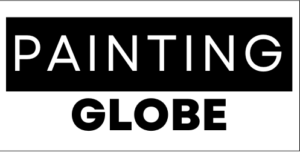Are you wondering over the benefits of starting a painting company in Nigeria?
If your answer is yes, then you are at the right place.
In the land of opportunity, where entrepreneurship thrives, starting a painting company in Nigeria offers a great deal of opportunity.
With the growing economy and increasing focus on home improvement, this has geared a desire for personalized services.
So, the painting industry presents a lucrative opportunity for aspiring paint production business owners.
In this article, I’ll explore 8 benefits of starting this entrepreneurial journey in Nigeria.
1. Lucrative Market Demand
The painting industry in Nigeria is vast, encompassing a diverse range of services such as interior and exterior painting, decorative finishes, and specialty coatings.
According to IBISWorld, the industry generates over $37 billion in revenue annually, with a steady growth rate over the past five years.
This presents one of the most important benefit of starting a painting company in Nigeria
Factors driving market growth include the booming real estate sector, renovation and remodeling activities, and increasing demand for sustainable painting solutions.
The housing market in Nigeria is robust, with millions of homes bought and sold annually.
Each of these transactions often involves some level of renovation or improvement, including painting.
However, homeowners frequently invest in painting services to enhance property value, refresh interiors and exteriors, and express personal style preferences.
Commercial sectors, including offices, retail spaces, and hospitality establishments, also require painting services to maintain a professional and inviting appearance.
2. Low Entry Cost
Compared to many other businesses, starting a painting company typically requires relatively low startup costs.
Essential equipment like brushes, rollers, ladders, and paint can be acquired relatively inexpensively.
Licensing and certification requirements vary, but do not have stringent regulations for starting a painting business, making entry into the market easier.
With the availability of online resources and training programs, aspiring painters can acquire the necessary skills and knowledge without extensive formal education, further lowering barriers to entry.
3. Flexibility and Independence
As the owner of a painting company, you have the flexibility to set your schedule and choose the projects you want to take on.
This flexibility can be particularly appealing to individuals seeking work-life balance or those with other commitments.
The ability to work independently or with a small team empowers entrepreneurs to make strategic decisions and adapt to market trends quickly.
It allows Independence from corporate structures and offers greater creativity in business operations, marketing strategies, and service offerings.
4. Recession-Resilient Industry
The painting industry has historically demonstrated resilience during economic downturns.
Even in challenging times, homeowners and businesses prioritize maintenance and general improvements to their properties.
Painting services are considered essential for property upkeep, ensuring a steady demand regardless of economic conditions.
Additionally, the cyclical nature of the housing market often leads to increased demand for painting services during periods of economic recovery.
5. Scalability and Growth Potential
Technological Advancements have brought about Innovations in paint formulations, application techniques, and digital tools which enhance efficiency, quality, and customer experience.
With all these, a painting business can be scaled gradually, allowing for organic growth and expansion based on market demand and business performance.
As your company gains reputation and clientele, you can diversify your services to include specialty painting, decorative finishes, and additional home improvement offerings.
Expansion opportunities may include branching into adjacent markets such as carpentry, flooring, cleaning, or landscaping, creating a comprehensive home improvement brand will also do well.
6. Community Impact and Job Creation
Building a painting company can also be an opportunity to engage with and contribute to the local community.
Participating in community events, offering pro bono services to nonprofit organizations, or sponsoring local initiatives can enhance your company’s reputation and attract more customers.
It also contributes to local economies by creating job opportunities for skilled laborers and supporting suppliers of painting materials and equipment.
By providing quality services and fostering positive customer relationships, painting companies can become trusted fixtures in their communities, generating word-of-mouth referrals and repeat business.
7. Environmental Sustainability
With increasing awareness of environmental issues, there’s a growing demand for eco-friendly painting solutions.
Many painting companies now offer low-VOC (volatile organic compound) or zero-VOC paint options.
This practice help in reducing harmful emissions and promoting healthier indoor air quality.
Adopting sustainable practices, such as proper disposal of paint waste and utilizing energy-efficient equipment, not only benefits the environment but also appeals to environmentally-conscious customers.
8. Challenges and Considerations
The painting industry is highly fragmented, with numerous small-scale operators alongside larger, established firms.
Competing on factors beyond pricing, such as quality, reputation, and customer service, is crucial for success.
Finding skilled painters and laborers remains a challenge for many businesses, particularly during peak seasons.
Investing in recruitment, training, and employee retention initiatives is essential to address this issue.
Economic downturns or fluctuations in construction activity can impact the demand for painting services, necessitating strategic planning and financial resilience.
Adhering to licensing requirements, safety standards, and environmental regulations adds operational complexity and costs to painting businesses.
Conclusion
The painting industry in America presents a spectrum of opportunities for aspiring entrepreneurs and existing businesses alike.
While profitability hinges on various factors such as market dynamics, competition, and operational efficiency.
Nevertheless, your strategic positioning, innovation, and a commitment to quality can paint a bright future for those willing to wield the brush.
Are you now ready to kick-start your journey in the painting industry?






























